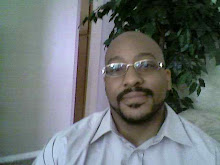Creative Commons, the people's champ, is 'Terminating' the traditional copyright
Photo credit: http://www.flickr.com/photos/d_vdm/
In rare cases, like that of Josh Woodward, I can understand why he would allow people to use his work freely. Mr. Woodward appears to be a pretty well-established independent artist, and he seems to now be at the point in his career where he wants maximum exposure. Maximum exposure would eventually allow him to catch the attention of "the machine" which is the major record labels. So in Josh Woodward's case, there is a method to his Creative Commons madness.
So how do you walk that thin line where you share your craft with as many people who are willing to receive it and not go bankrupt in the process? I don't know, maybe that is why this concept is so hard to grasp for me. It will definitely help indie artists gain exposure, but there's just that minor detail of getting paid that keeps popping up. I guess artists are going to have to start being more savy when it comes to marketing themselves and advertising their products. I know there are still ways they can make a decent living -- it will just take more work. However, if I put on my non-artist lenses, I think Creative Commons is wonderful for creating visual aids, special projects, web pages/sites, etc. You can go to Creative Commons and find whatever you need for you particular endeavor. . . Just make sure that you give credit to the original artist for any material that you reproduce.
There are many government agencies getting on the Creative Commons bandwagon. Here's an article about The Australian Bureau of Statistics getting with the common folk:
http://abs.gov.au/websitedbs/D3310114.nsf/4a256353001af3ed4b2562bb00121564/8b2bdbc1d45a10b1ca25751d000d9b03?opendocument?utm_id=HPI










I did struggle for a few days trying to grasp why Creative Commons is useful when the issue of getting paid for your work comes up. I like how you went further to list how you think Creative Commons can be used other than just for artists. As far as educational material is concerned, I do think Creative Commons would definitely help out those websites and media content because they can quickly copyright without waiting for a long traditional process to finish.
ReplyDeleteI just commented on Shahnaz's blog about my other reservation. What happens if you see your coyprighted work elsewhere on the web and your copyright is "all rights reserved". What do you do in that case?
ReplyDeleteI totally agree with you - I feel like if I work hard and put a story together or anything else and put it in cyberspace for others to use - it feels like it takes away from me. I am not sure I like that. I am pretty possessive of my work. I enjoyed your post.
I love the title for this blog! One of the best sentences in this post is about simultaneously loving and hating Creative Commons. It really does describe the sentiments I'm having towards it as well--seems like a beautiful idea, but at the same time I feel bad for the artists that are losing money and some rights. However, in my blog I mentioned that one must lose money to make money--so the extra publicity can't hurt much, right?
ReplyDeleteWow. This brings up an interesting point. The photo that you posted of Arnold Shwartzenegger is probably violating copyright. The image was taken by George Butler, the director of the movie "Pumping Iron." So it seems that a Flickr user posted material that he doesn't own then put a CC share alike label on it. I haven't thought about this. But, it does make you realize that even with CC - you must be very cautious of the source. It is possible that this photo is in the public domain. But, I wouldn't bet on it.
ReplyDeleteThis post is a good analysis of CC. But, I'm not sure the goal for indy artists any more is to get picked up by big labels. If they can get well know out in the long tail, they can use services like Jamendo and profit from their works - while still allowing others to express creative freedom.